The Ukraine Recovery Conference (URC2024) concluded in Berlin
Date:
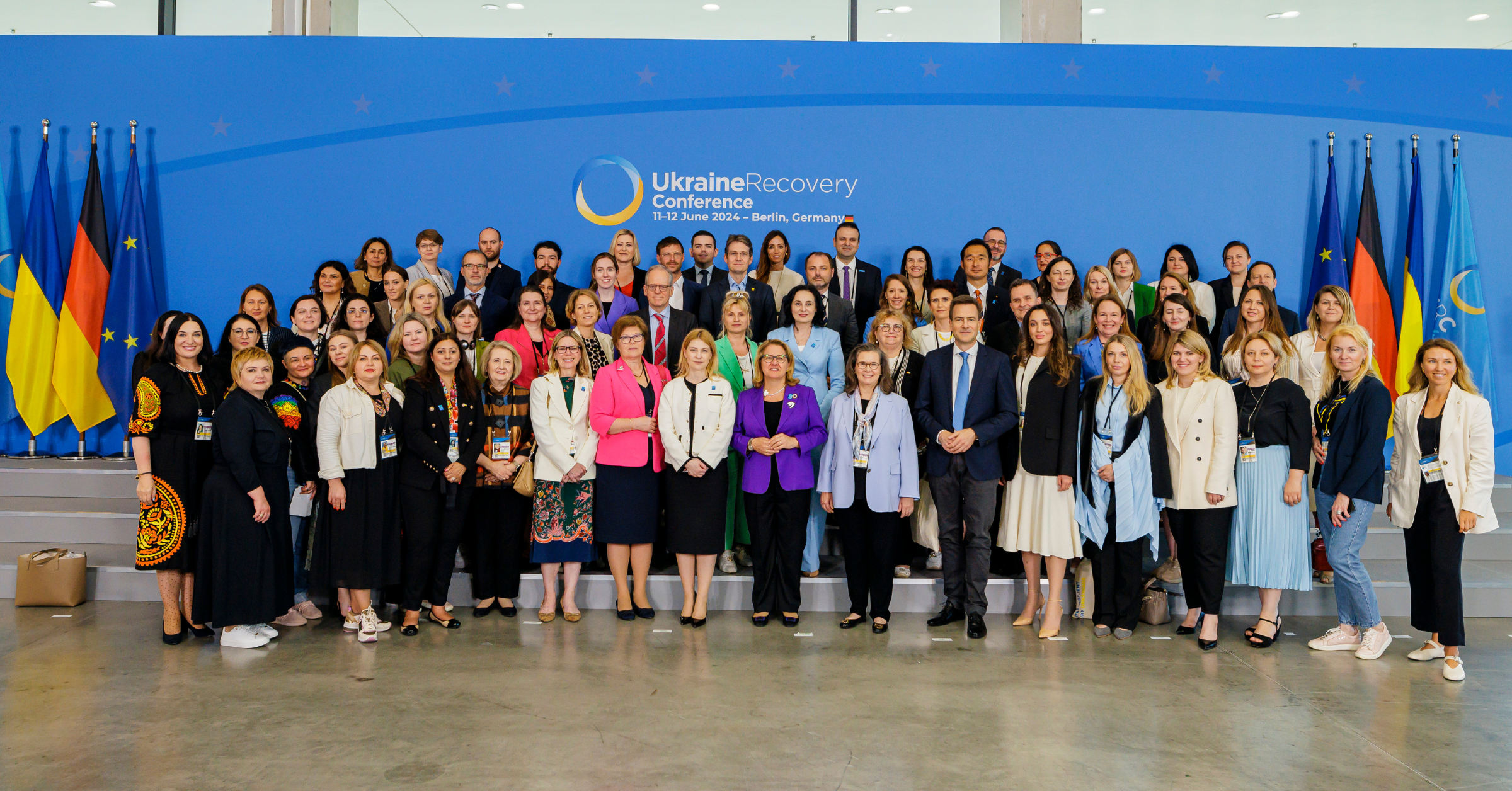
The Ukraine Recovery Conference (URC2024) concluded in Berlin on June 12, continuing the series of annual high-level political events dedicated to Ukraine’s swift recovery and long-term reconstruction since the onset of Russia’s full-scale war against Ukraine. The conference brought together over 3,400 participants, representing a wide array of stakeholders, including governments, international organizations, financial institutions, businesses, regions, municipalities, and civil society, all united by a shared commitment to strengthen Ukraine’s resilience for as long as needed.
During the two days of the conference, delegates from various countries collaborated on key issues as well as practical solutions for a responsible and inclusive recovery of Ukraine. The conference was held under the motto: “United in defense. United in recovery. Stronger together.”
For the first time since the first event in the series - Ukraine Reform Conference in London in 2017, a dedicated thematic panel on "Gender Mainstreaming and Female Leadership: Ensuring Gender-Responsive and Inclusive Recovery for Ukraine" was organized by UN Women Ukraine in collaboration with the Federal Ministry for Economic Cooperation and Development of Germany (BMZ) and the Cabinet of Ministers of Ukraine. The panel focused on gender-responsive and inclusive recovery emphasizing women’s leadership and enabling women to fully contribute to and benefit from Ukraine’s recovery. The speakers discussed barriers to women's empowerment and gender equality, particularly in the economic and political spheres. They also highlighted the international support for a gender-responsive and inclusive recovery and reconstruction process.
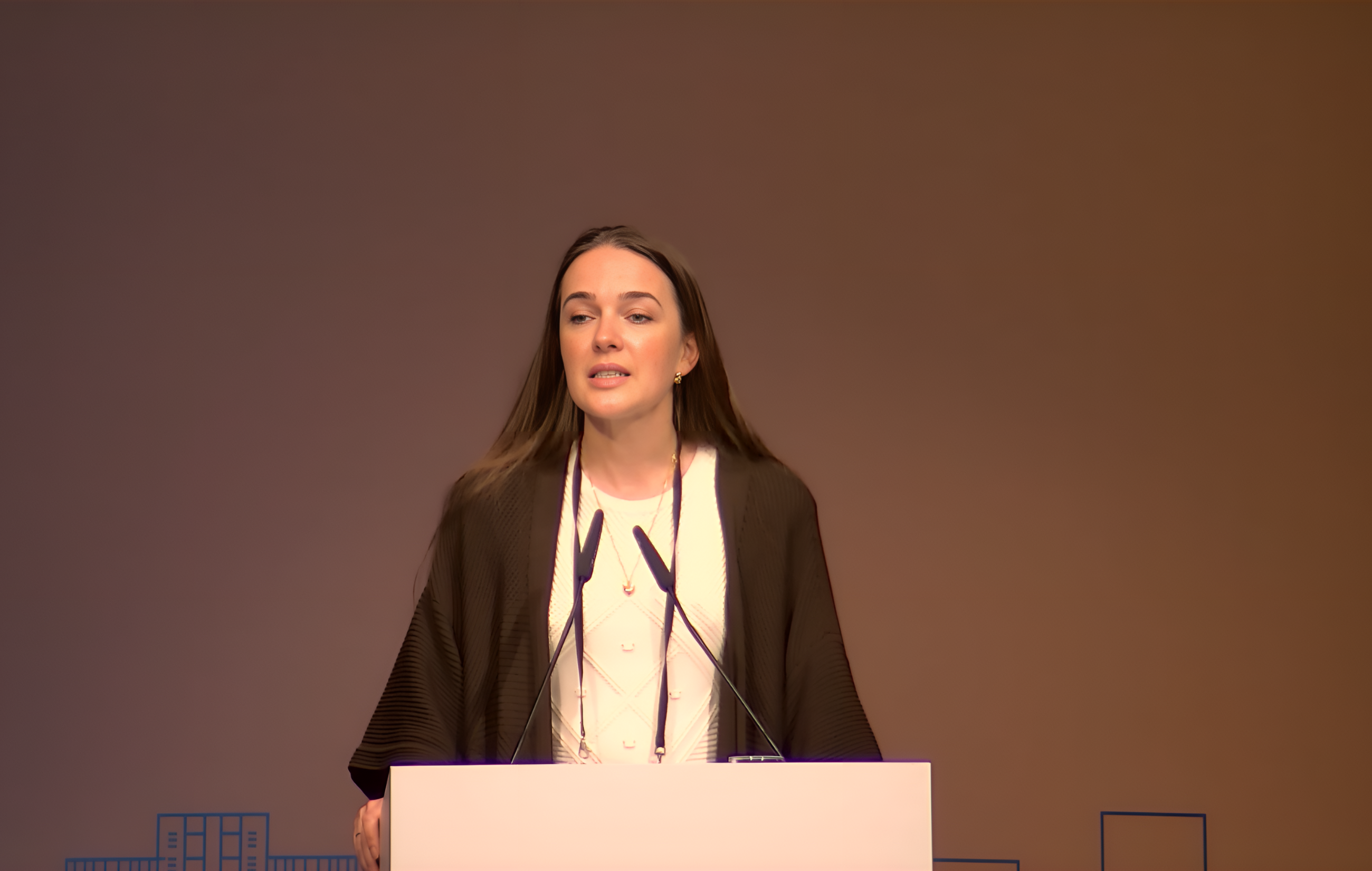
Opening the panel discussion, Oleksandra Matviichuk, Human Rights lawyer, head of the human rights organization “Center for Civil Liberties,” and co-receiver of the Nobel Peace Prize in 2022, highlighted the role of women in Ukrainian society, noting that today Ukrainian women are fighting for their future and the future of their children: “They deserve not just sympathy, but respect; not just social assistance, but gender equality. That is why it is crucial, especially during wartime, to implement additional measures to ensure equal representation and to actively involve women in all critical processes within the nation. The international community must prioritize gender issues and inclusiveness in the recovery and reconstruction process. This means that international donors and partners should involve women at all stages of planning, financing, and implementation of the recovery and reconstruction process.”
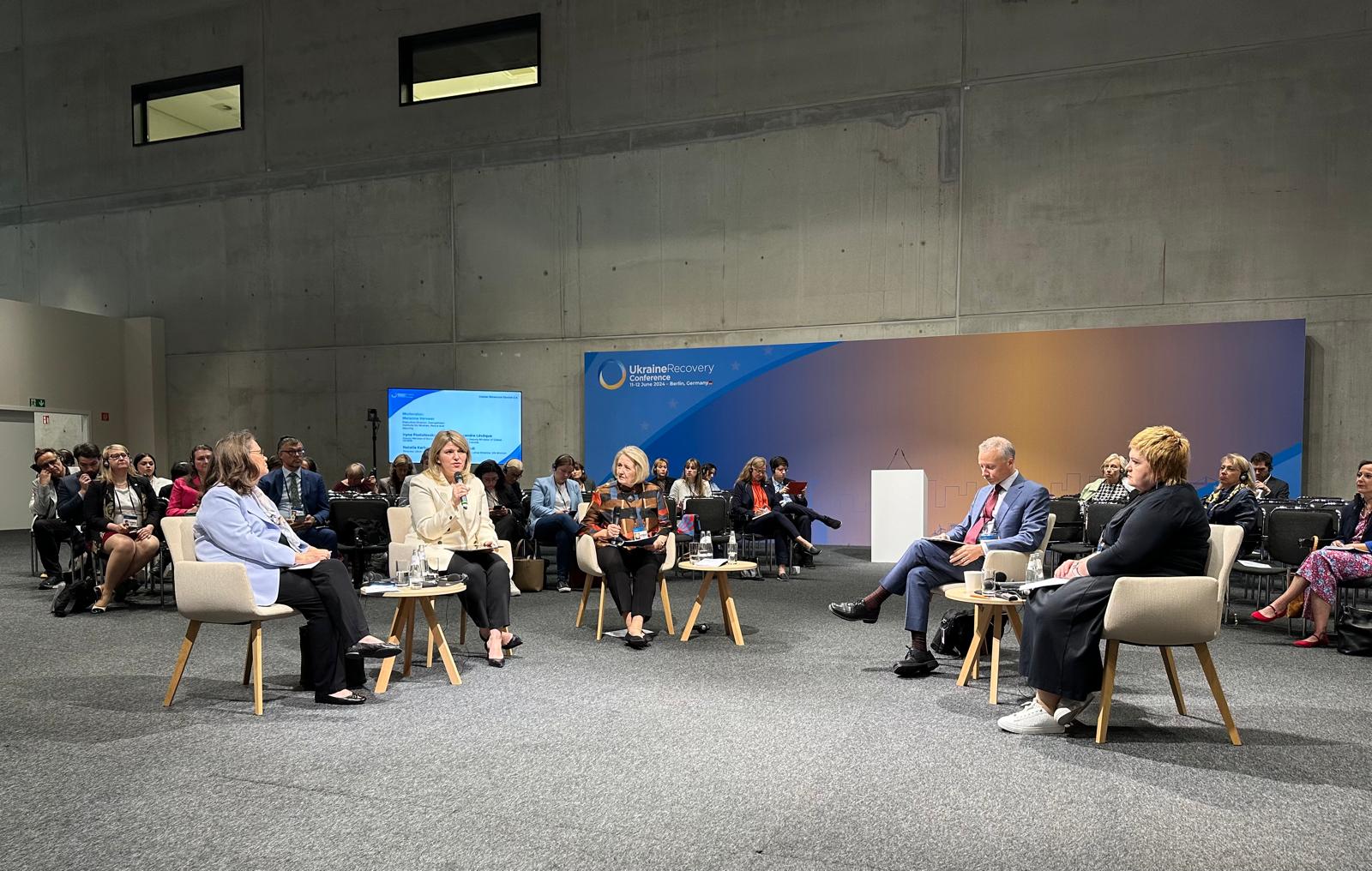
Iryna Postolovska, Deputy Minister of Social Policy of Ukraine for European Integration, emphasized the impact of the Russian full-scale invasion on women and girls, noting that, due to the war, women are now shouldering a significantly larger share of unpaid work, particularly in caring for their families, children, the elderly, and people with disabilities. Postolovska underscored the Ukrainian government’s implementation of a gender-inclusive approach to recovery and reconstruction and noted: "We understand that women are an integral and essential driver of economic growth, and without involving them in this recovery process, we will not be able to succeed. We cannot mobilize and ensure Ukraine's success without their participation. Additionally, gender equality is a fundamental right and principle within the EU integration process, which Ukraine aspires to and has made tremendous progress toward. We cannot afford to lose this momentum. We need to continue our efforts and ensure that, with the help of international partners, gender equality remains a critical element of the recovery process."
Recent OECD data shows that since the start of Russia’s large-scale invasion in 2022, there has been a decrease in international funding for gender equality. In 2022, ODA to Ukraine jumped from USD 1.3 billion in 2021 to USD 18.9 billion. At the same time, 90 percent or USD 17.1 billion (90%) of this funding did not include any gender equality objectives. Only USD 44 million was allocated to efforts to advance gender equality as the principal objective.
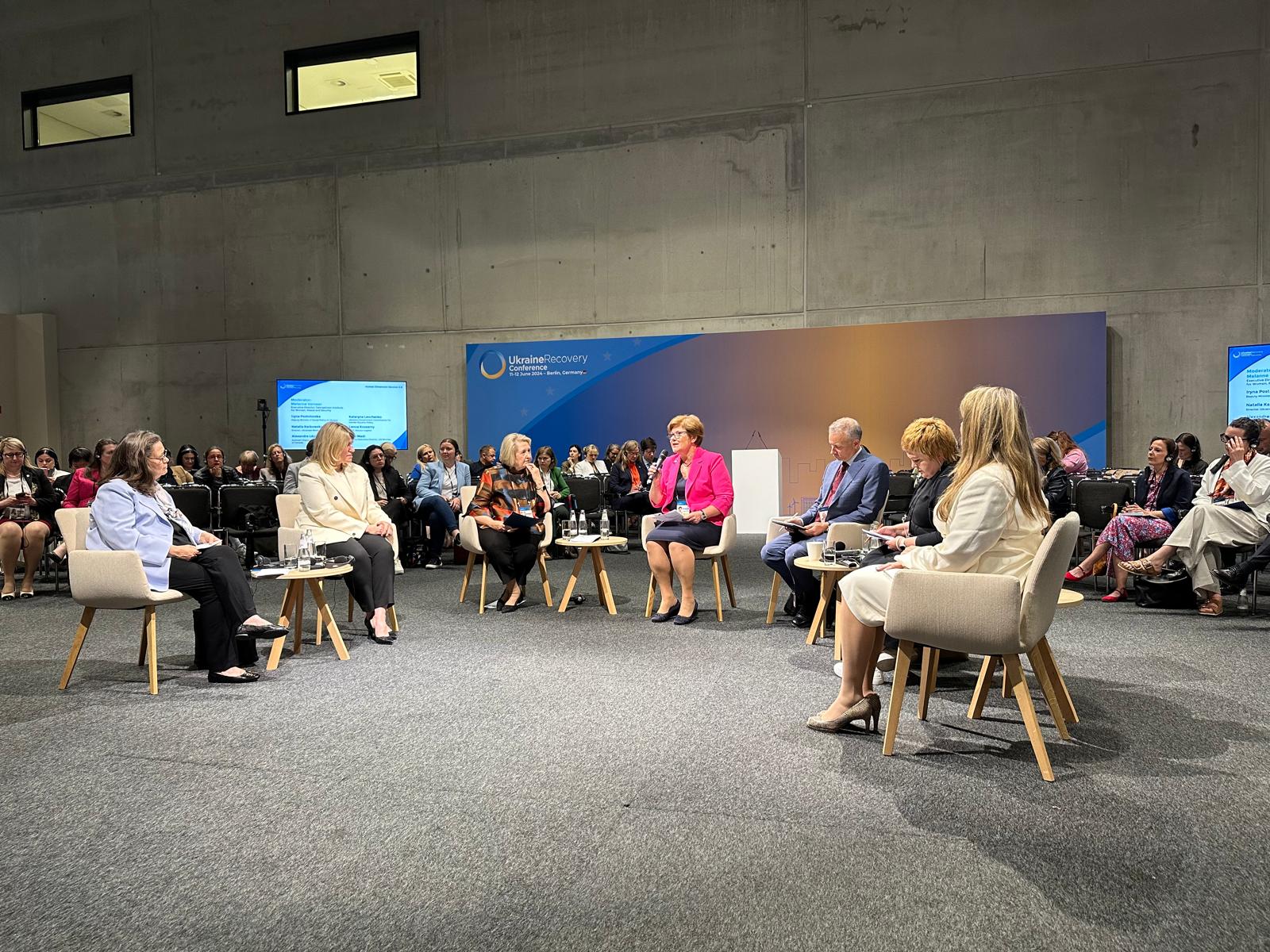
Kateryna Levchenko, Ukraine Government Commissioner for Gender Equality Policy, outlined key tasks in implementing gender-responsive recovery plans: “Our main objective is to follow through with our plans and fulfill our defined obligations. This is the collection and use of data disaggregated by gender, the involvement of public organizations in the processes of creation, implementation, and monitoring of recovery plans from the very beginning, the use of gender-oriented budgeting, gender analysis, and gender indicators in the system of international financial assistance, and state and business partnership”.
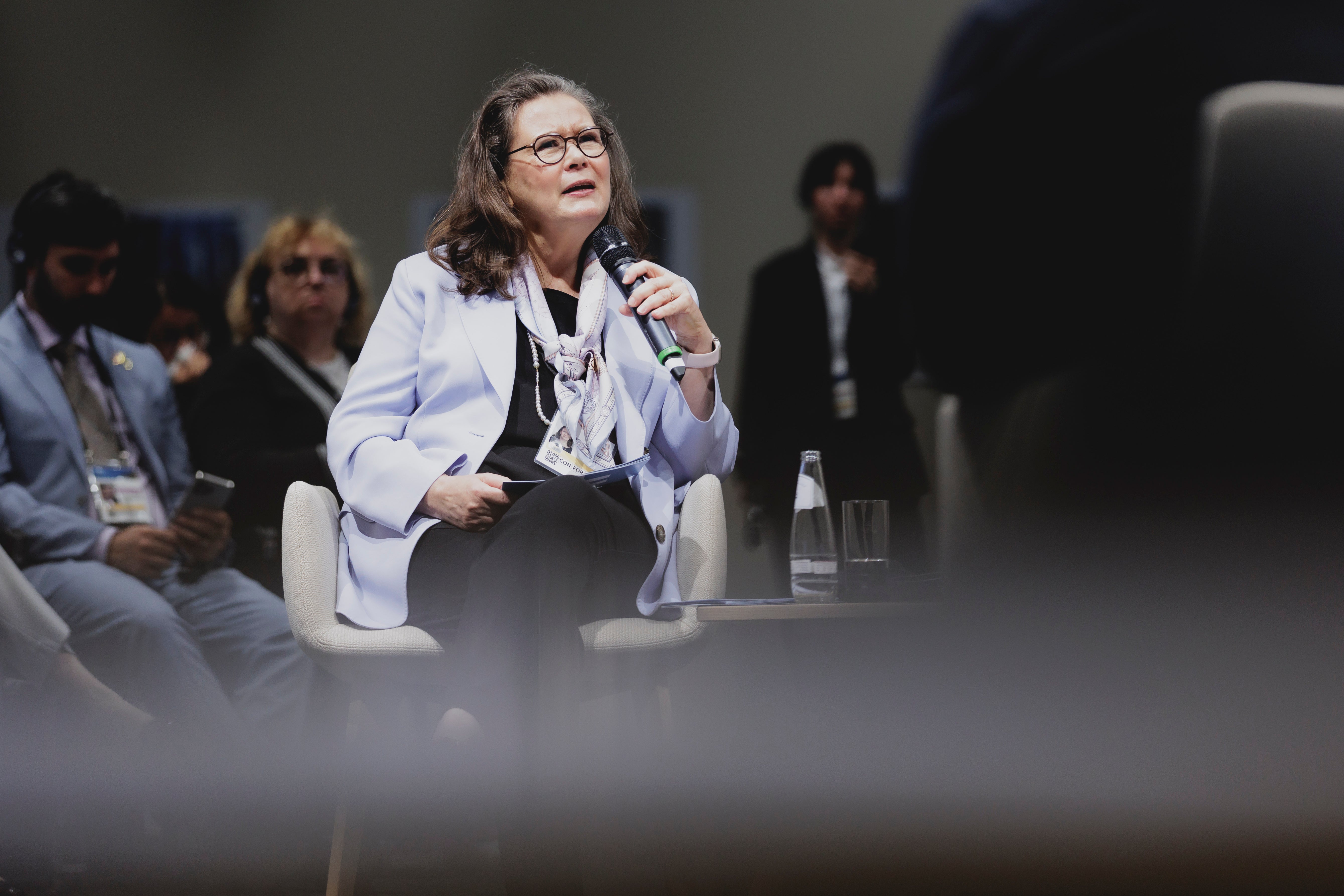
Kirsi Madi, UN Women's Deputy Executive Director for Resource Management, Sustainability, and Partnerships, commended Ukraine for its advancements in promoting gender equality and women's economic empowerment, as well as for integrating a gender perspective into its recovery plans. She emphasized the significance of securing sufficient financing for these plans and noted: “At UN Women we commend the Government of Ukraine for the commitment to gender-inclusive recovery and have been encouraged to see how the Ukrainian Government Facility Plan incorporates the principle of the inclusivity, equality and social cohesion. While gender equality is incorporated across the recovery plans, the funding to reach those gender equality and women’s empowerment objectives is yet to materialize. And it is very important for us to consider specific measures to ensure that resources are invested in the right areas.”
The role of businesses in promoting gender equality and women’s empowerment was also addressed during the panel. Lenna Koszarny, Founding Partner and CEO of Horizon Capital, mentioned that fifty-six percent of new businesses in Ukraine are being launched by women, and two-thirds of new jobs in Ukraine are held by women: “Give women the resources and the tools to promote gender smart investing, invest in other women to move things forward. Now we must make sure that women have the capital. There is the capacity in Ukraine, there are women leaders, there’re women funds and NGOs and we must make sure that we keep looking and finding these women. Back Ukrainian women and you will never go wrong.”
Alexandre Lévêque, Assistant Deputy Minister for Europe, Arctic, Middle East and Maghreb at Global Affairs Canada shared best practices for ensuring a gender-responsive and inclusive recovery in Ukraine and said: “Good practices in gender responsive planning needs to make sure that women are in decision-making situation, women must be represented in non-talking roles. Commend influence over budget and distribution of budgets is absolutely essential. And of course, holding positions of the political influence.”
This year's Ukraine Recovery Conference hosted a record number of Ukrainian civil society representatives, highlighting the critical role civil society plays in the humanitarian and recovery processes in Ukraine. This diverse group included representatives from various communities, including the LGBTQ+ community and Roma women. Notably, the conference also achieved a remarkable level of women’s participation, ensuring gender balance amongst participants and speakers.
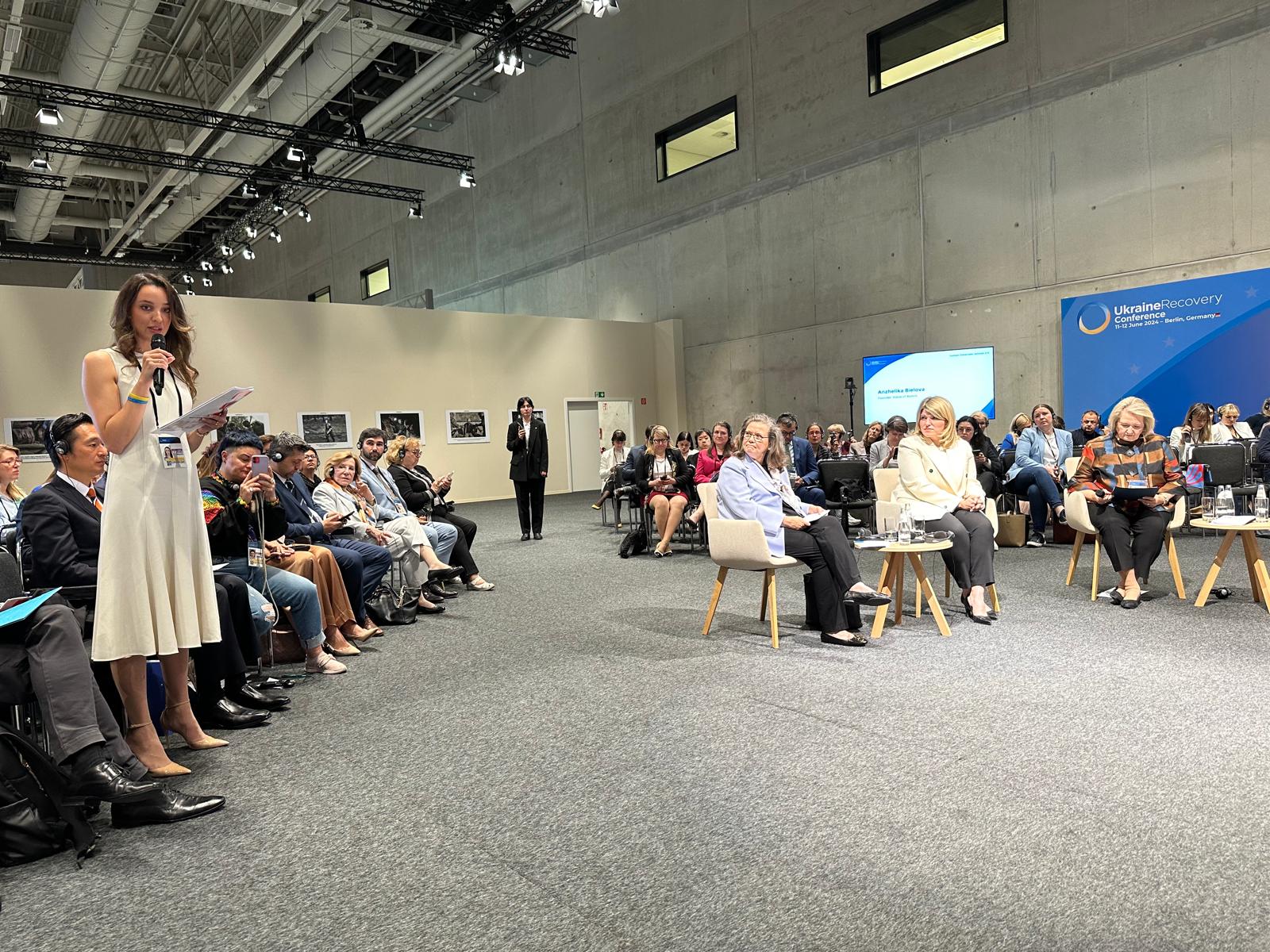
Anzhelika Bielova, founder of the Roma women’s organization Voice of Romni, called for the inclusion of all groups of women into discussion and decision-making and said: “Every time you sit at the decision-making table to plan the recovery of Ukraine or humanitarian response programs, ask yourself: ‘Who is not at the table?’ Then make sure to involve those who are missing. With this approach, we will ensure a gender-responsive and inclusive recovery for Ukraine.”
Natalia Karbowska, Co-Founder and Director on Strategic Development of the Ukrainian Women’s Fund, noted that the unprecedented number of civil society organizations at the URC24 signals the international community’s recognition of the critical role of civil society in Ukraine’s recovery.
Summarizing the panel discussion, Kirsi Madi, UN Women's Deputy Executive Director for Resource Management, Sustainability, and Partnerships, stressed: “Gender equality is not only about principles, human rights, non-discrimination, or women's rights. Investing in gender equality is a smart decision for businesses and society. Therefore, it is not a question of whether incoming resources should have a gender perspective and lens—they must have a gender lens if we want to make a difference.”
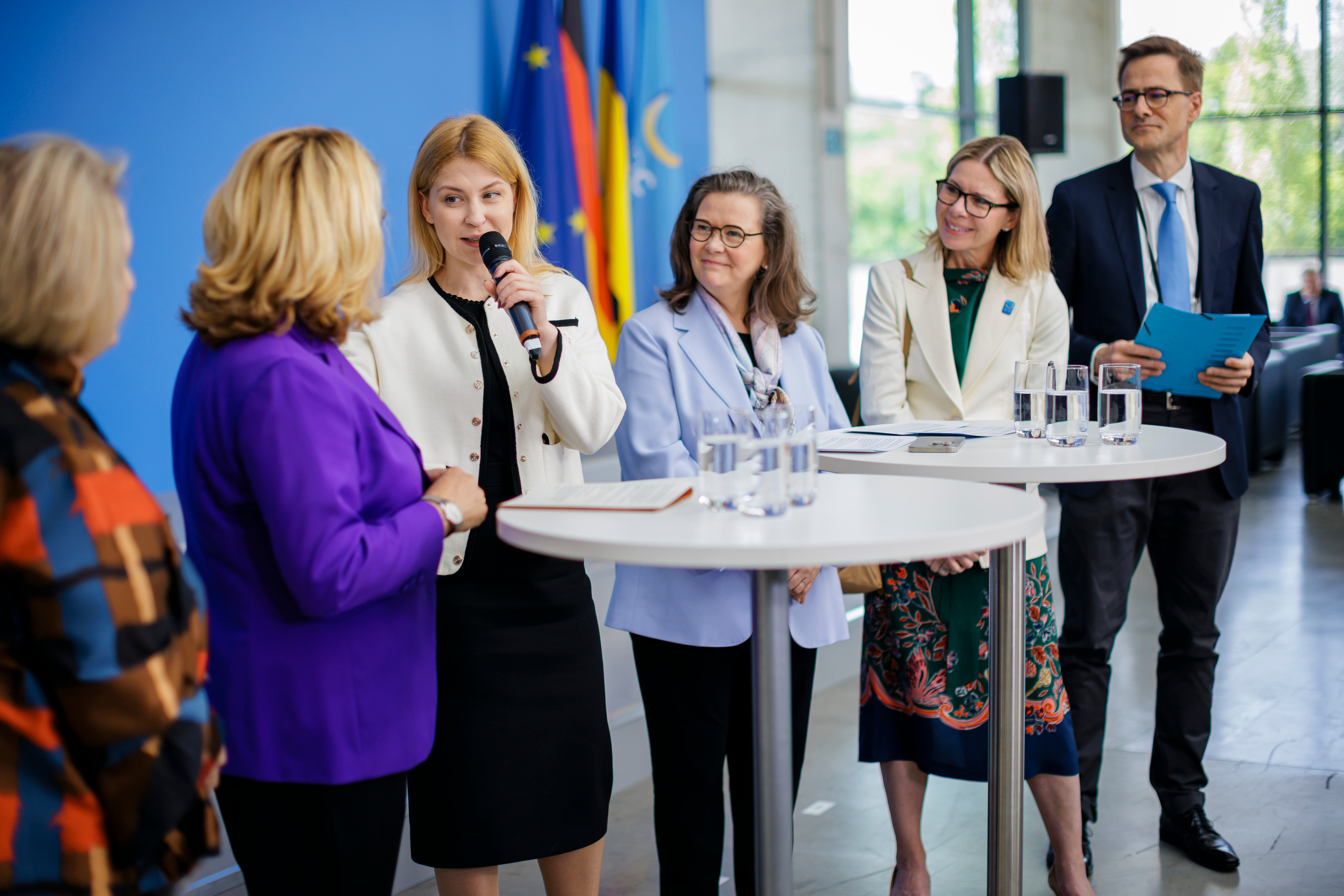
Following the panel, the “Alliance for Gender-Responsive and Inclusive Recovery” (ECA Link: “Alliance for Gender-Responsive and Inclusive Recovery”) was officially launched. Spearheaded by UN Women Ukraine in collaboration with the Federal Ministry for Economic Cooperation and Development of Germany (BMZ) and the Cabinet of Ministers of Ukraine, the Alliance is a multi-stakeholder platform that aims to ensure that gender equality and women's empowerment are central to Ukraine's recovery and reconstruction efforts. Sabine Freizer Gunes, UN Women Representative in Ukraine, emphasized the importance of the Alliance for the gender-responsive recovery of Ukraine and said: “Rebuilding Ukraine, particularly with a focus on gender-responsive recovery, is an immensely challenging but crucial task for Ukraine. To ensure sustainable development and foster a gender-equitable and just society, it is essential to address women's needs and actively involve them in recovery planning and decision-making processes. The launch of the Alliance sends a strong signal to everyone in Ukraine and the international community that Ukraine is committed to gender equality and women's empowerment.”